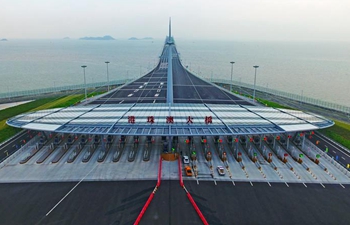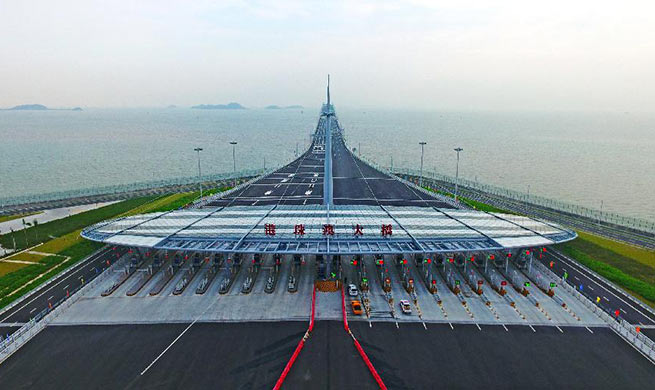VALLETTA, Oct. 24 (Xinhua) -- A majority of foreign investors in Malta believe the country's appeal lies in its corporate tax rules, according to Ernst and Young's annual attractiveness survey.
This year's survey polled 150 companies that have a combined turnover of over 2.5 billion euros (2.85 billion U.S. dollars).
In general, 74 percent of investors said they believed Malta to be an attractive destination for Foreign Direct Investment (FDI), but only 48 percent said they believed Malta would still be attractive in three years time, with 47 percent saying they weren't sure.
Almost one in nine respondents (88 percent) said Malta was attractive due to corporate taxation considerations, while three-quarters cited the island's social climate as what made it more attractive. A total of 67 percent said Malta was attractive because of the potential for productivity increases for their company.
On the other hand, the areas investors felt Malta needed to improve most was in the stability and transparency of its political, legal and regulatory environment (44 percent); its R&D and innovation environment (37 percent); and transport and logistics infrastructure (26 percent).
The survey found most investors (83 percent) believe that Malta was keeping pace with regulatory changes in competing jurisdictions, up 19 percent since last year.
One of the biggest challenges faced by investors in Malta was the ability to source skilled labor. In fact, 64 percent of respondents said they were finding it difficult to recruit the required personnel.
Speaking at an event during which the results were announced, Prime Minister Joseph Muscat noted that a significant portion of respondents had pointed to a lack of talent as being a major obstacle.
Malta needed to be as open as possible, he said, insisting that the country could not expect growth if it resisted more foreign workers.
Muscat pointed out that in the last 21 quarters, Malta had always registered growth that was at least twice the European average.
He said the country had gone from the possibility of an excessive deficit procedure in 2013 to yet another budgetary surplus. "In one legislature we wiped out the debt that had been accumulated."
Maltese households had more money invested with local banks while business profits had also increased substantially since 2013. He said the country had been able to reduce electricity tariffs, lower income taxes, and implement other reforms despite scepticism both locally and abroad.












